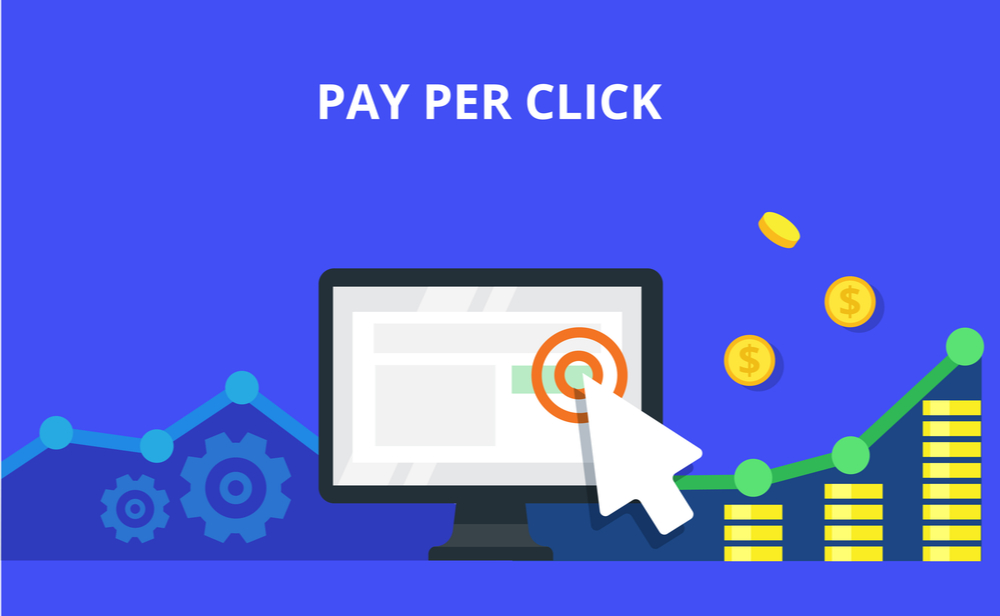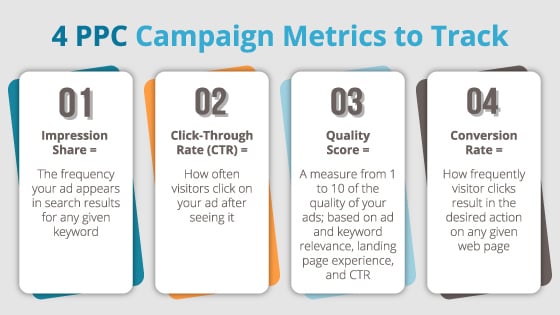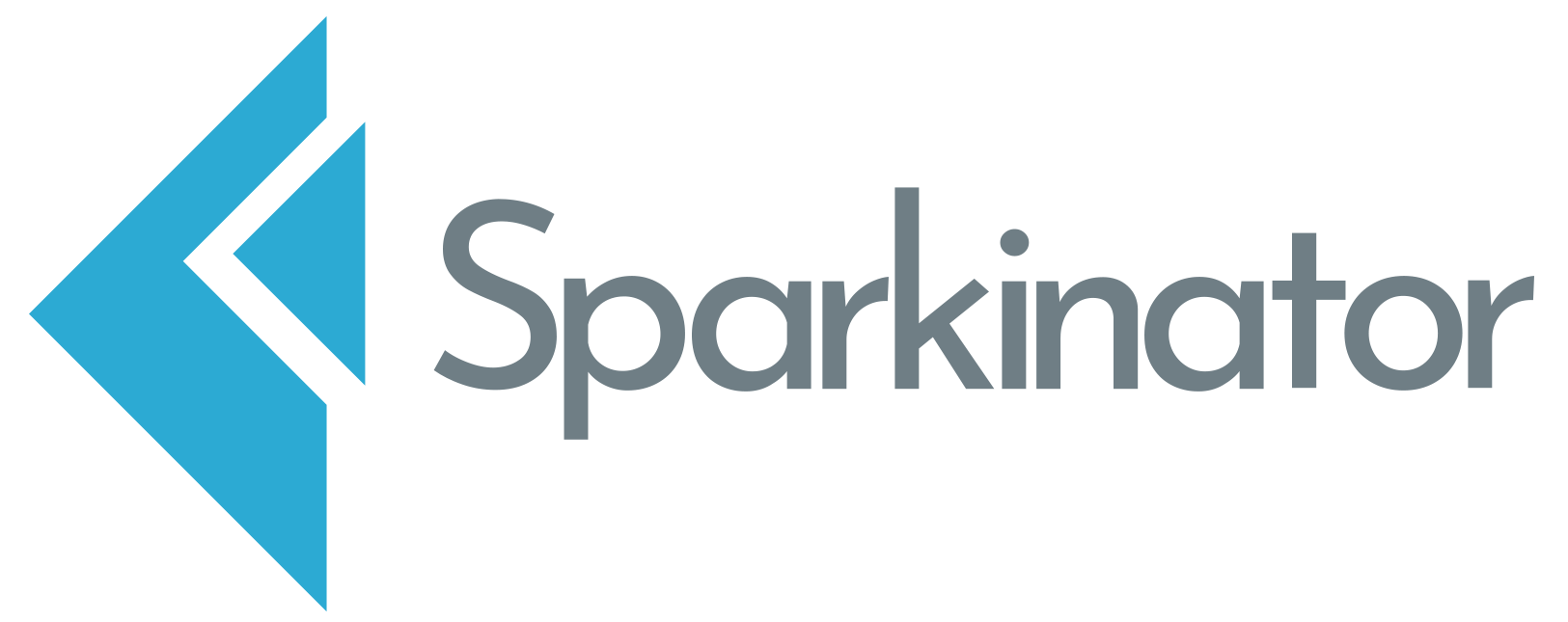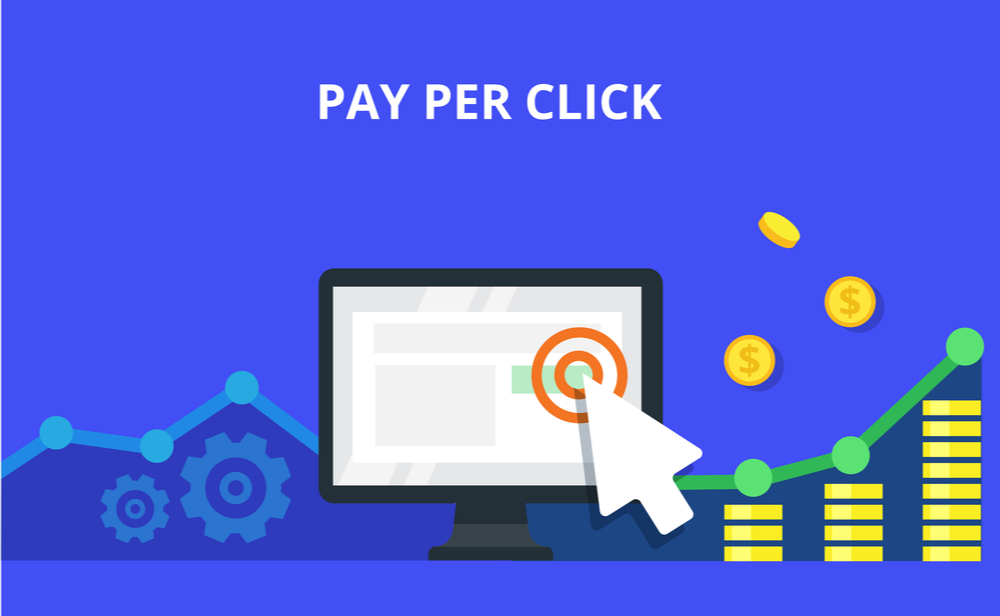
In today’s digital world, 81% of people search online for a product or service. With this in mind, businesses have their work cut out for them when it comes to converting the massive audience available online. Pay-per-click (PPC) campaign management enables you to bid for keywords that your target audience uses on Google, increasing your chance of being the star in search results. You pay your bid amount when a searcher clicks your ad to visit your site.
Here is a rundown of the main aspects of setting up and managing a PPC campaign in Google Ads, so buckle up for the ride.
Creating a PPC Budget
PPC ad spend varies for many reasons, including how long you'd like to run your ad and the number of people you'd like to reach. Among other factors, bid prices for your target keywords come into play. PPC campaign management helps you create a reasonable budget for ads campaigns. Here is how you can get your PPC ad spend right.
Use Google Keyword Planner
A well-thought-out Google ads campaign structure begins with choosing the keywords you want to target and determining the amount to pay for each click. You'll most likely have keyword ideas based on the likely search queries for your business and industry. However, if you really want to join the ranks, we recommend that you use tools like the Keyword Planner to research the keywords on your mind and discover new, relevant ones.
Furthermore, the tool shows the cost you should expect to pay when someone clicks your ad after searching a given keyword. It also tells you the number of searches a keyword receives per month and the suitability of your keywords for different categories related to your business. How convenient is that?
Let's say your ad has a cost per click (CPC) of $0.20 and you would like it to have 200 clicks per day. Your daily budget should be:
$0.20 x 200 = $40
Google will charge you a maximum of $0.20 if you set that as your maximum CPC. Keyword prices may change with auction variables. In this case, your daily budget might drop at times but will never exceed $40.
Run Campaign Tests
It can be hard to know what works or doesn't work for your business unless you perform test campaigns. Please note that these tests aren't always profitable, but don't stop reading yet! They are necessary to establish a rewarding PPC strategy. If you lose money, consider it an investment that you'll recoup after launching tested, proven, and optimized PPC ads.
Choosing Google Ads Campaign Types
Below are some of the different PPC campaigns types you can run under the Google platform.
Google PPC Ads
With Google Ads being the largest provider of search advertisements on the web, you won't want to miss out on PPC Ads. Google advertisements come on top of search engine result pages (SERPs) when customers search for businesses on Google search and Maps. These are what most people think of when they hear PPC marketing. They start with a fancy 'Ad' icon to notify the audience that the advertiser paid to display the ad on that particular spot. Such advertisements mostly satisfy buying intent.
Google Display Network for PPC
This technology allows businesses to advertise using text and images on different websites, including blogs and news sites. With a network reach of over 2 million sites seen by over 90% of people on the internet, you should want all eyes on you. While the ads reach the vast majority of internet users, they have lower click-through rates than Google Ads that appear on a search engine results page. They are suitable for creating brand awareness.
Remarketing Campaigns
Only a tiny percentage of your traffic completes a purchase or contacts you after interacting with your site. That's why your business needs a remarketing program. It tracks prospects after leaving your website and reminds or incentivizes them to return and buy something.
A remarketing program uses cookies to follow buyers (perhaps a little creepy) and target them with ads that may interest them. It's available on Google Ads, and it requires bidding in real-time like other PPC campaigns.
The Best Keywords for Your PPC Campaign
According to Google, one key to succeeding in highly targeted PPC advertising campaigns is knowing what not to target. Enter: negative keywords.
Negative keywords prevent people who aren't interested in your business from viewing your ads. Thus, they can't click them, which saves you money. If you sell a music player app, you can use 'free music player' as a negative keyword. It will hide the ad from those looking for a free music player so that you won't waste your ad spend on them.
How to Find Negative Keywords
- Check the keywords that trigger your ad on Google's search term report. Add any irrelevant keywords to your negative keywords list. You can also include keywords that don't generate quality leads.
- Use the Google Keyword Planner to view search terms related to your best keywords. Consider all irrelevant terms as negative keywords.
- Finally, perform a Google search for your targeted primary keywords. Are there irrelevant organic results and ads? Add negative keywords to stop such undesired results.
Different Bidding Strategies You Can Use
If you've made it this far, congratulations! Let's look at some bidding strategies.
Google offers multiple bidding strategies for PPC campaigns, each designed for different advertising goals.
Target CPA
This bidding option targets cost per acquisition (CPA) based on Google suggestions or internal business data. It's ideal when you've set a maximum cost per conversion (CPC) threshold to break even or make money. Since Target CPA relies on your data, you should have a realistic target and enough budget to accomplish it.
Target ROAS
This strategy is similar to Target CPA, but it focuses on return on ad spend (ROAS). You need to set a minimum return to make a profit when using Target ROAS.
Target Impression Share
Target Impression Share focuses on your impression share and the position you want your ad to show. When bidding, clarify whether your ad should appear within the top block of ads or be the very first.
How PPC Relates to Organic Search and Search Engine Optimization (SEO)
The main difference between PPC and SEO (organic search) is the cost. While PPC uses paid rankings on SERPS, organic search relies on SEO to boost a site's online visibility and rankings. When done right, both methods provide an impressive ROI, deliver actionable data, and support multiple marketing channels.
Each of these lead generation methods has its unique benefits. Paid search accommodates every budget, attracts ready-to-buy prospects, and generates instant results. On the other hand, organic search is free, attracts relevant users, and boosts domain authority and website credibility.
Best Practices for Optimizing a PPC Campaign
Below are some simple ways to enhance and optimize your PPC campaign. We all love simple success, am I right!?
Regular Keyword Updates
You usually launch a PPC campaign with several keywords. Be sure to review the keywords for all your ad groups regularly to remove or replace the underperforming ones.
Optimize Your Site for Speed
Potential customers who click your ads will leave if your website is too slow. Ensure your site loads in no more than 2 seconds.
Heighten Site Accessibility
Visitors should be able to read and navigate your site smoothly regardless of their physical abilities. Use easy-to-read fonts and content layout, and a mix of text, images, and video accordingly.
Ensure Website Security
Have HTTPS web addresses instead of HTTP to avoid penalties by Google, which can hurt your PPC campaign. Also, provide secure payment methods to enhance customers' trust.
Use Ad Extensions
Many free and paid add-ons exist that tell users about your site and what people think about your brand at a glance. Examples include callout, review, sitelink, and social extensions.
Tips for Setting Up Retargeting Ads
Retargeting is an excellent way to reach an audience that's most likely to convert: people who have visited your site before. It's an effective way to convert them into buyers or compel existing customers to buy again.
Below are 3 creative ways of making impactful retargeting ads.
Showcase Only Relevant Products
Know your prospects and target them with products that solve their pain points. They'll ignore your ad if it doesn't address their interests.
Go Straight to Your Selling Points
Since you're addressing people who already know you, there's no point in introducing yourself. Craft a copy that showcases your product offerings to convince prospects to come back and buy.
Create Urgency Using FOMO
Entice customers to buy as soon as possible by making them feel the fear of missing out (FOMO). For instance, give a discount and add a message like 'Last-Minute Deals' to guide the prospect into a quick buying decision.
Key Metrics to Track When Running a PPC Campaign
If you'd like to assess the success of how your campaign performs, take the following metrics into account.
Impression Share
Impression share is the frequency your ad appears for a given keyword. If your ad shows 70 times in 100 searches, your impression share is 70%.
Click-Through Rate (CTR)
CTR is how often visitors click your ad after seeing it. If Google showed your ad 1,000 times and it received 600 clicks, your CTR would be 60%.
Quality Score
Google assigns a quality score from 1 to 10 based on the relevancy of your keywords and ad and overall landing page experience.
Conversion Rate
This result-driven metric determines how frequently clicks result in conversions. If 30 of your 1,000 visitors convert, your click conversion rate is 3%.

Common Issues Associated with PPC Campaigns in Google Ads
You may notice a decline in conversions due to landing page flaws, misleading pricing, and conflicting positive and negative keywords. Another problem might be disapproved ads or keywords. It happens when you defy one or more Authorized Buyers' Policies for advertising on Google.
When you commit an egregious violation, Google suspends your Google Ads account without warning. You get alerts for other offenses and lose your account if you don't rectify the highlighted issues.
Final Thoughts
We hope you can now launch your PPC campaign more confidently, knowing you'll get the best out of your ad spend. PPC Campaign management is a necessary evil in having a successful site that continues to bring in clients. If you have a headache after reading this article, the good news is that you don't have to take this on alone.
At Sparkinator, our Google-certified team will review your website and see where we can help you level up. Contact us for a free consultation to better leverage your marketing dollars.





.png?width=1625&name=logo%20(1).png)